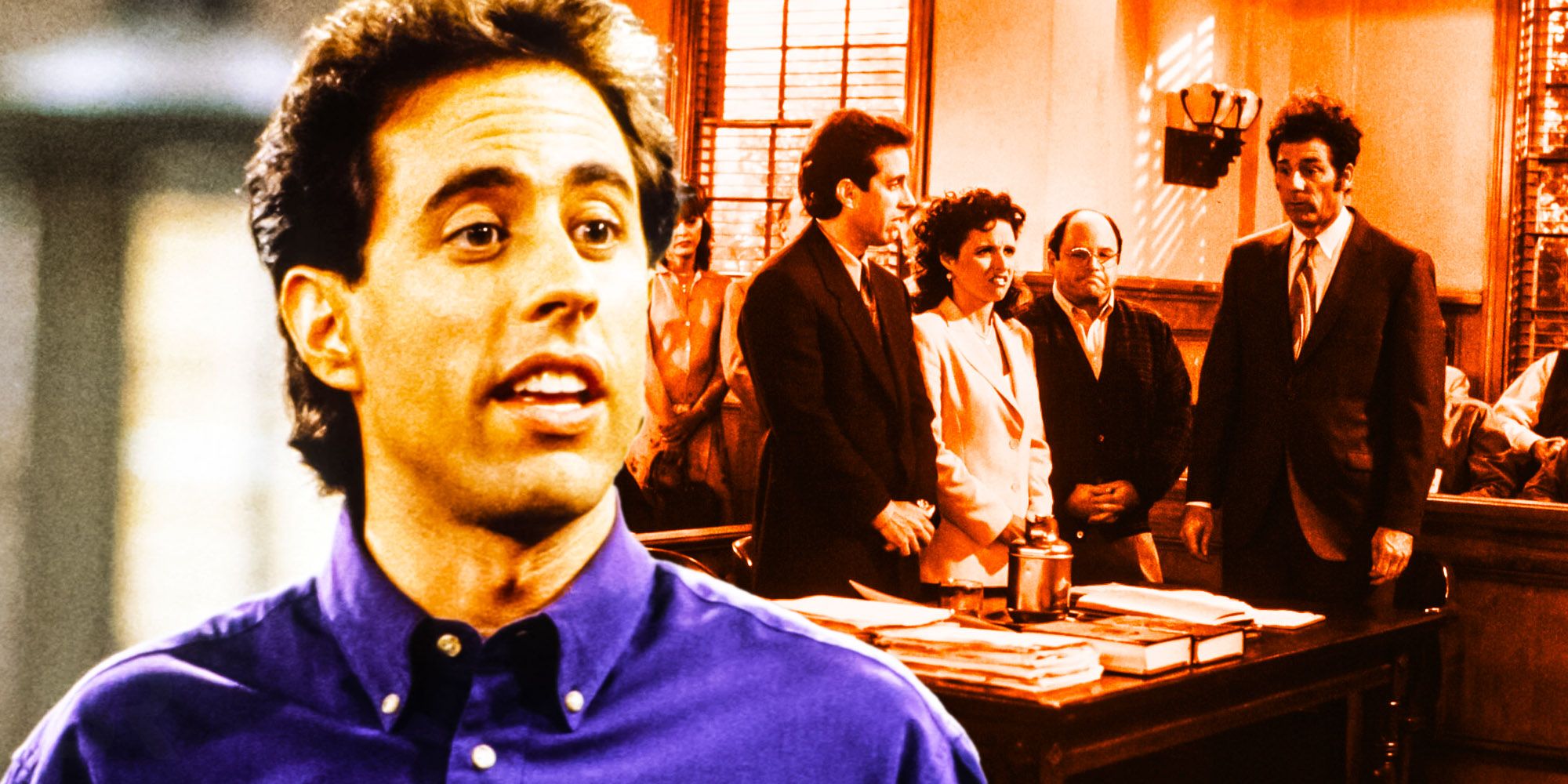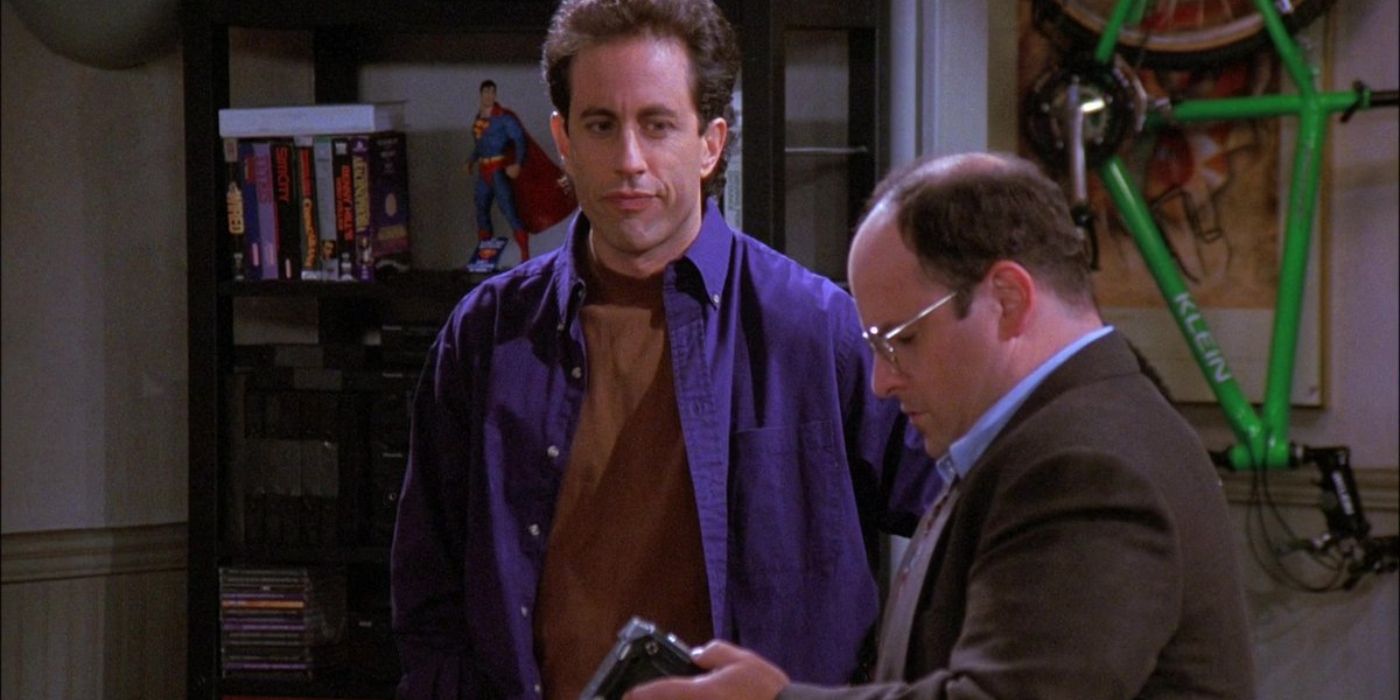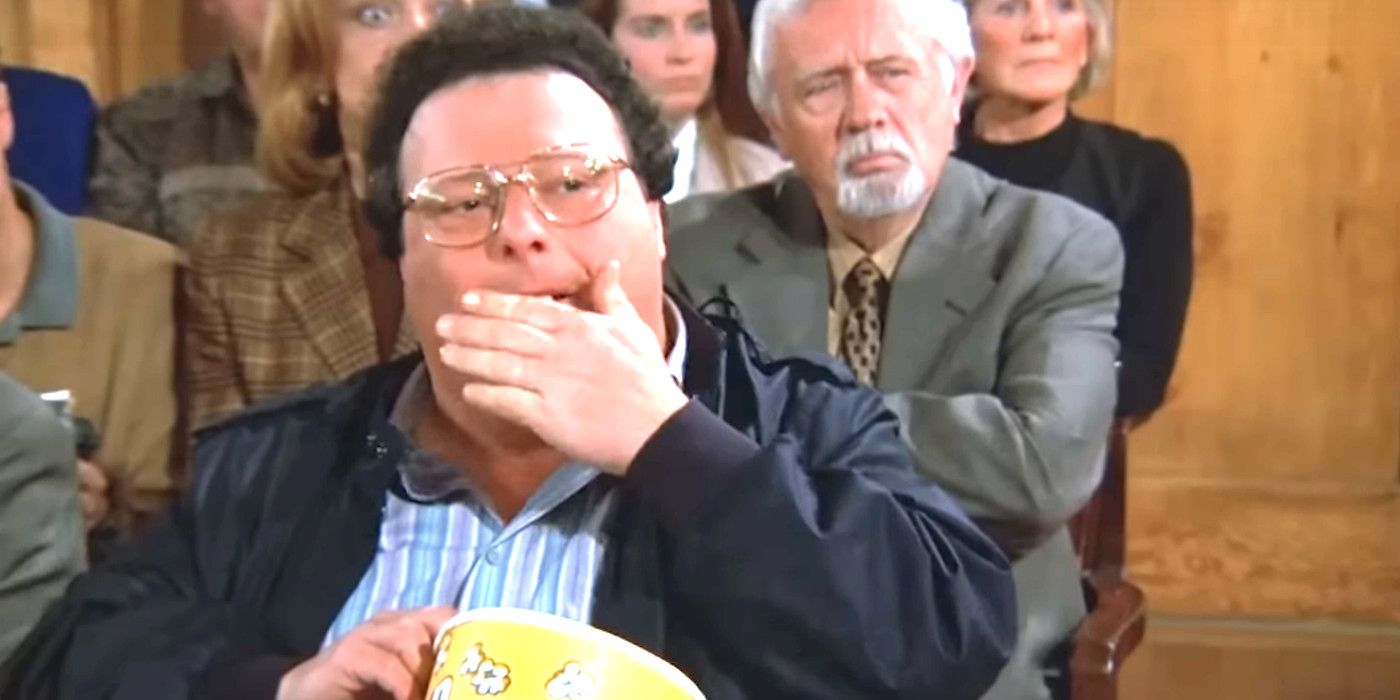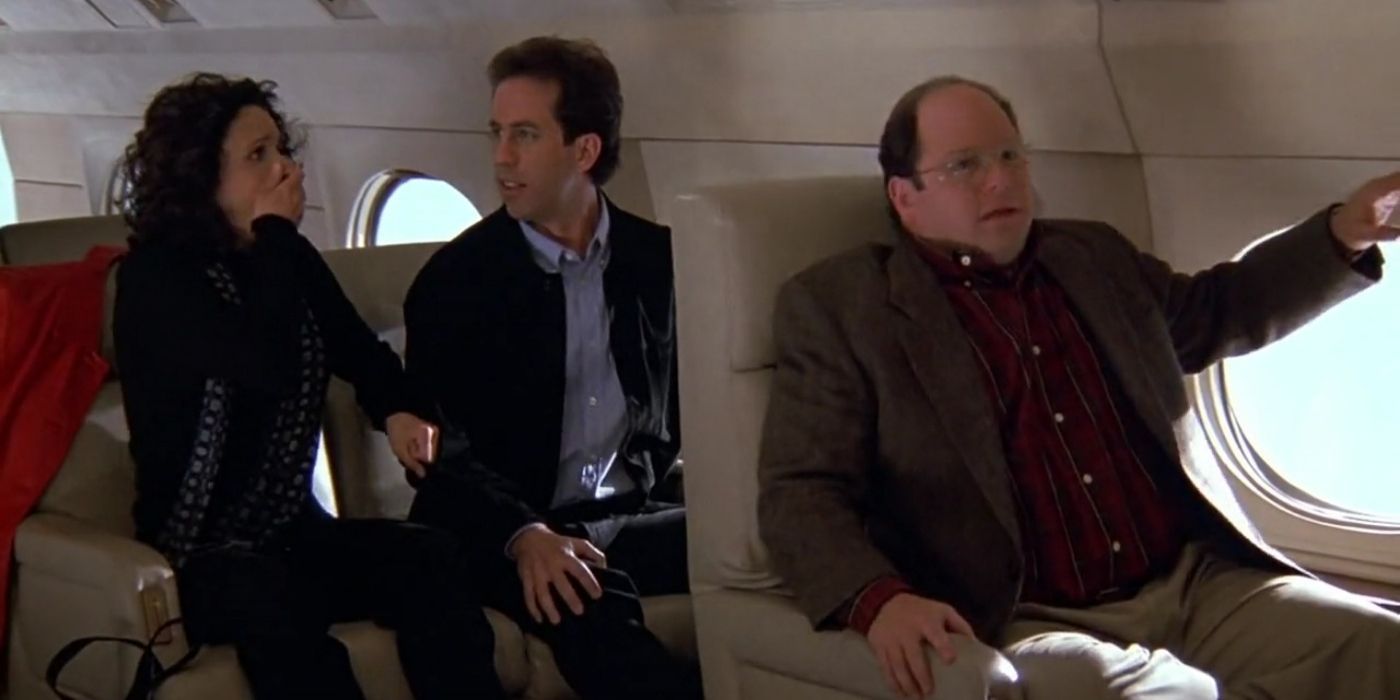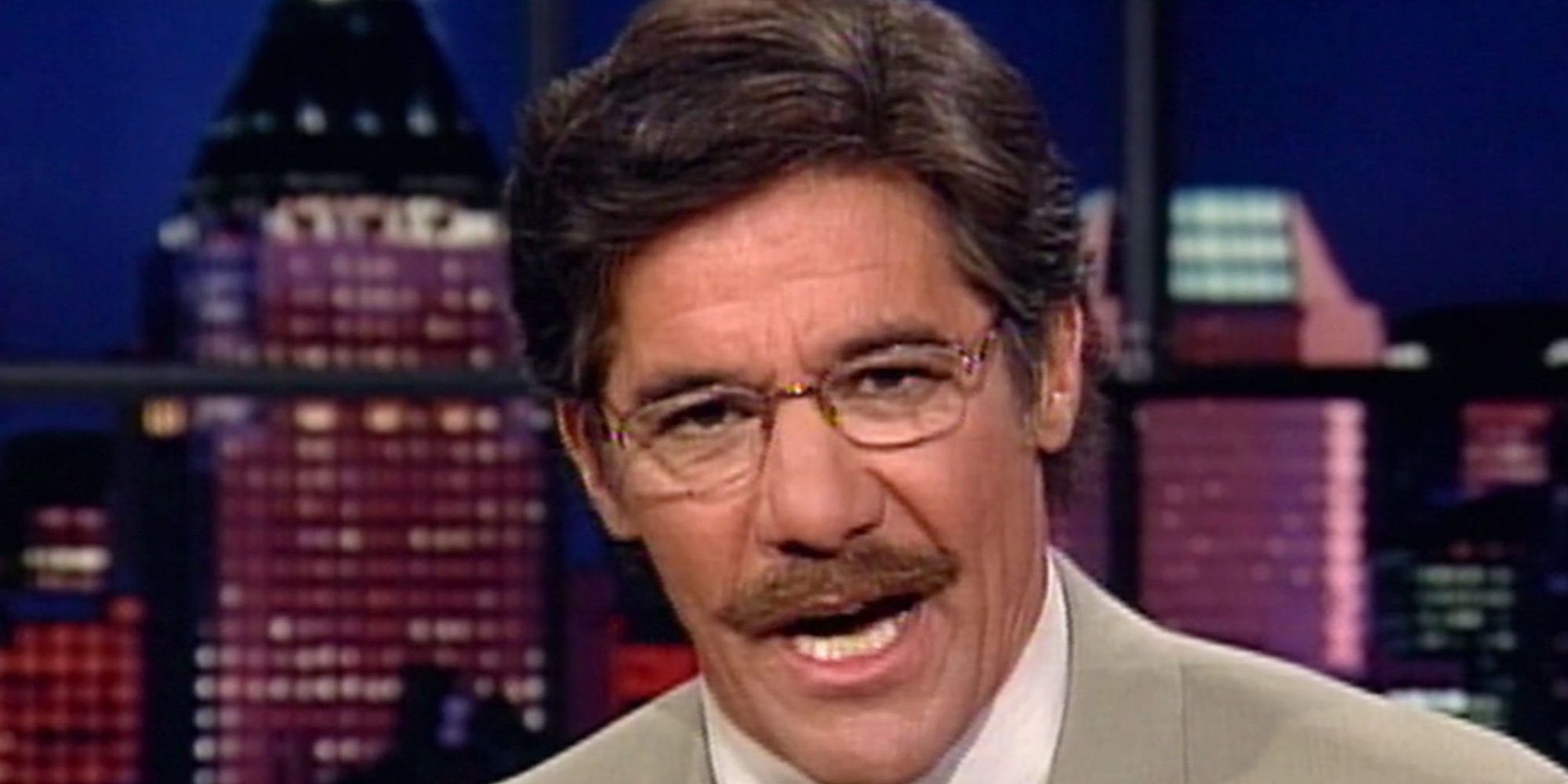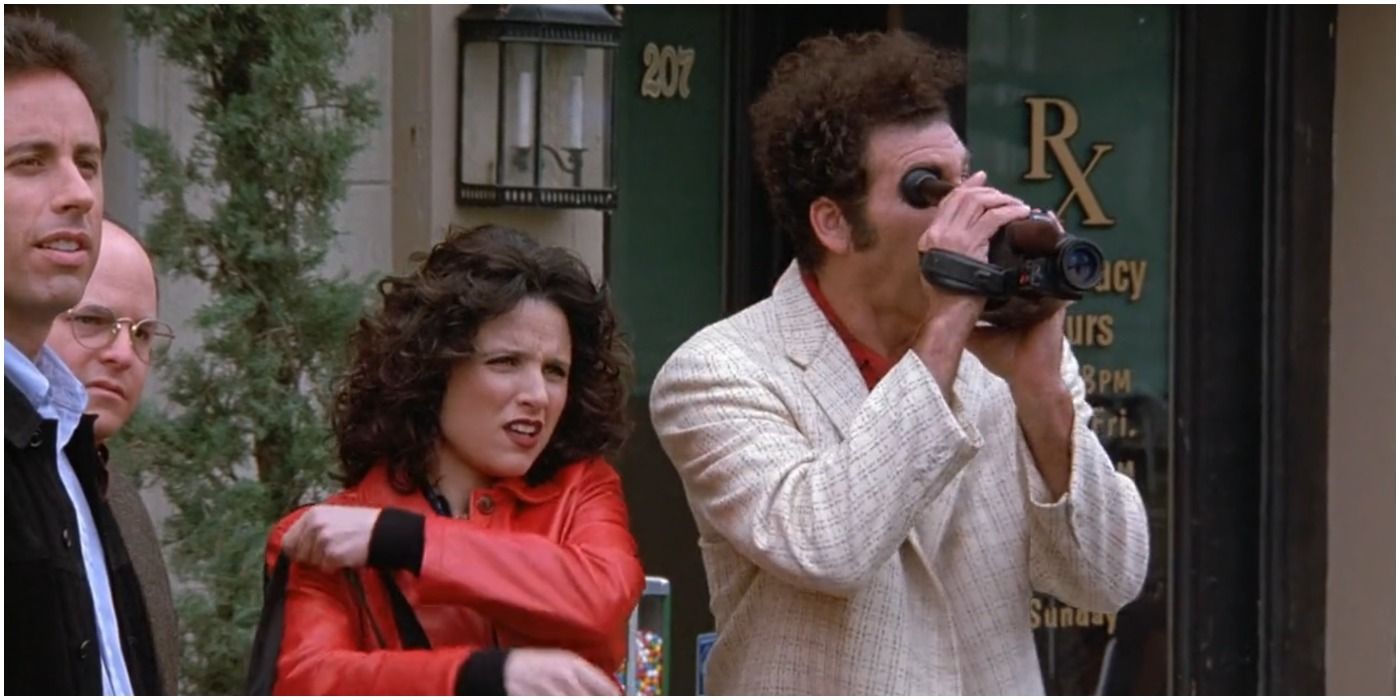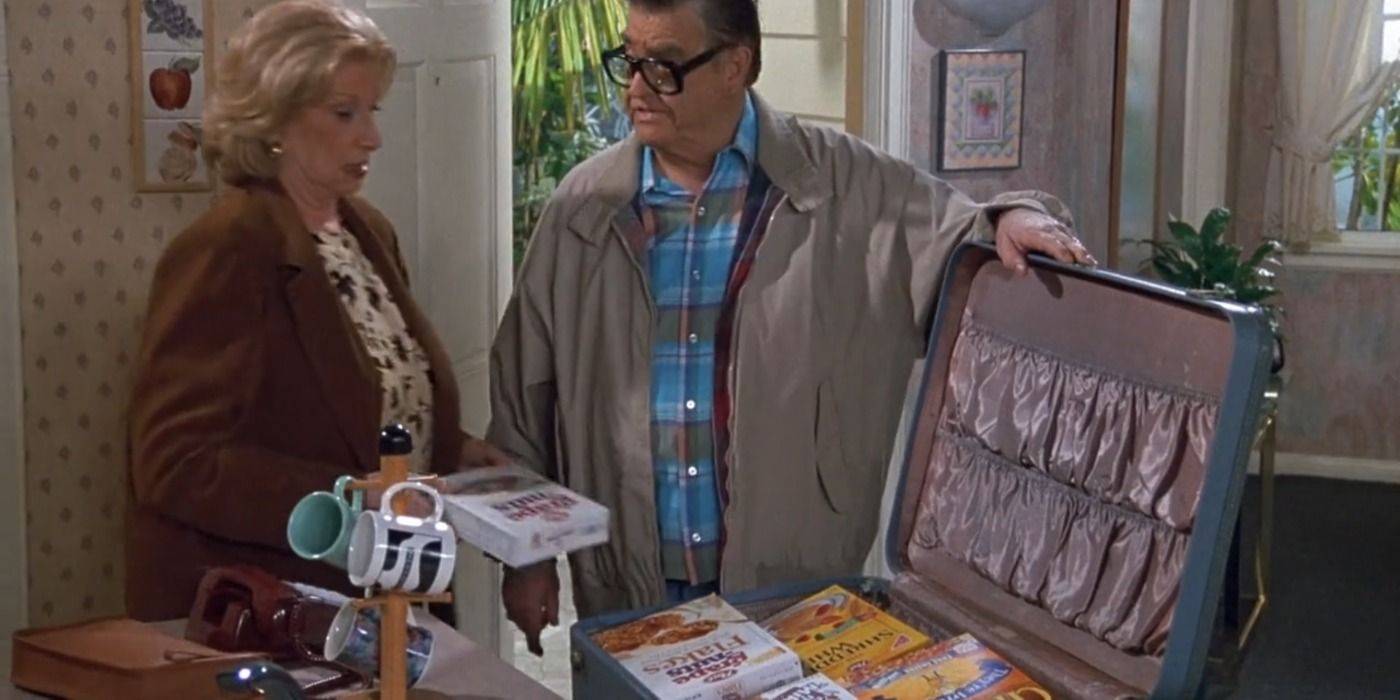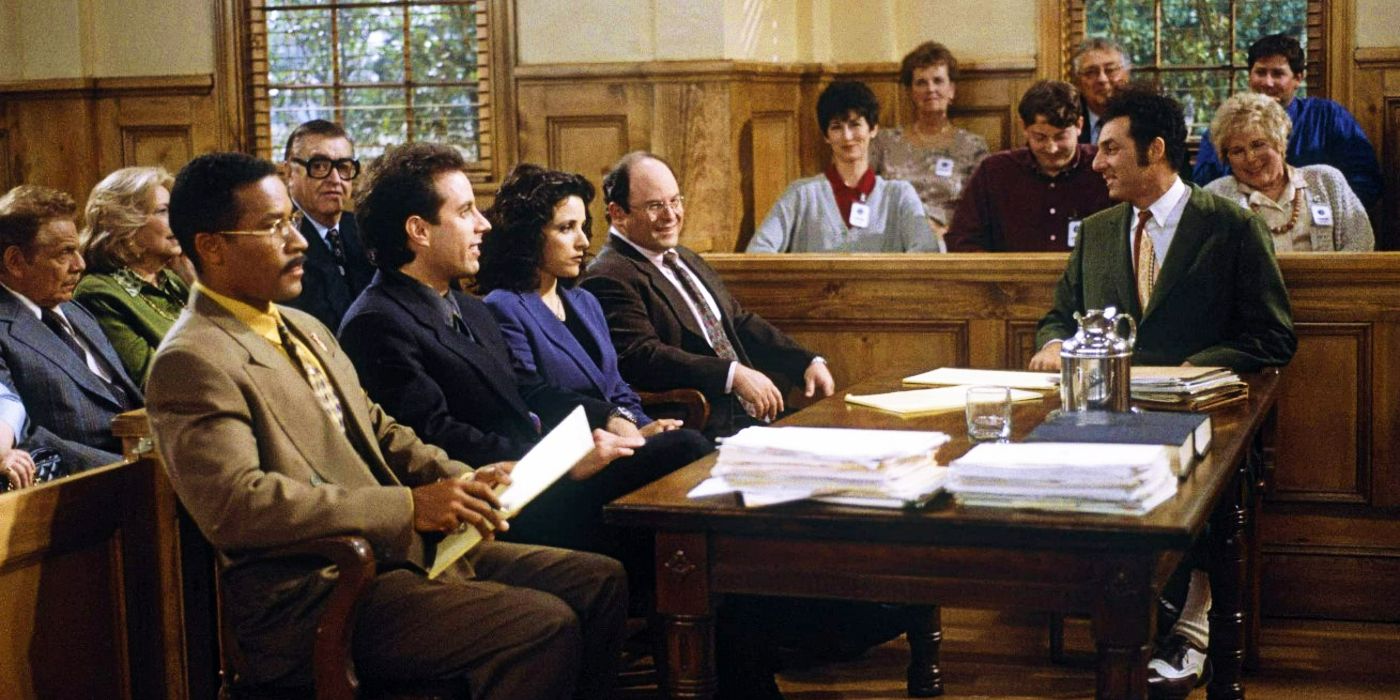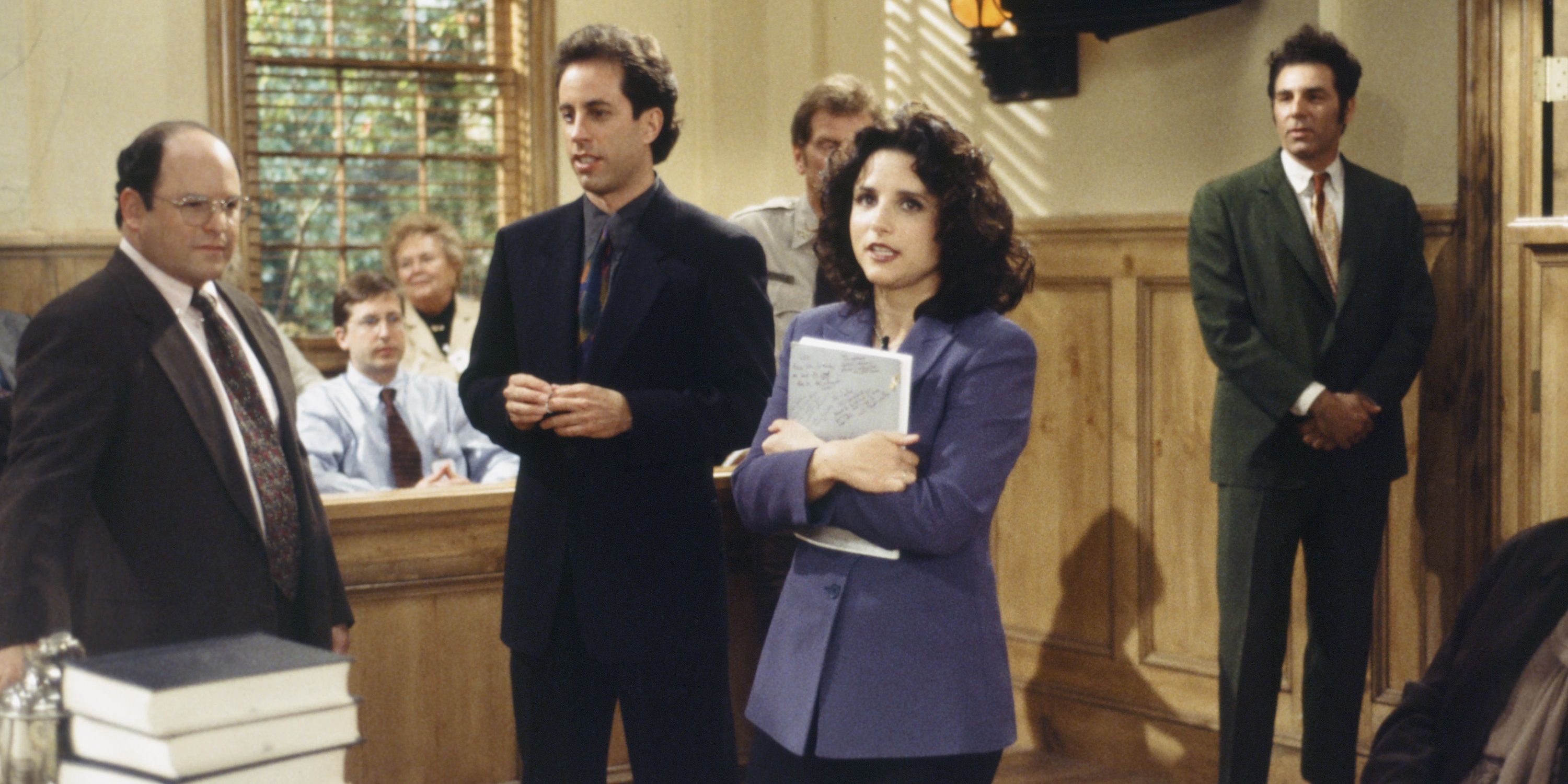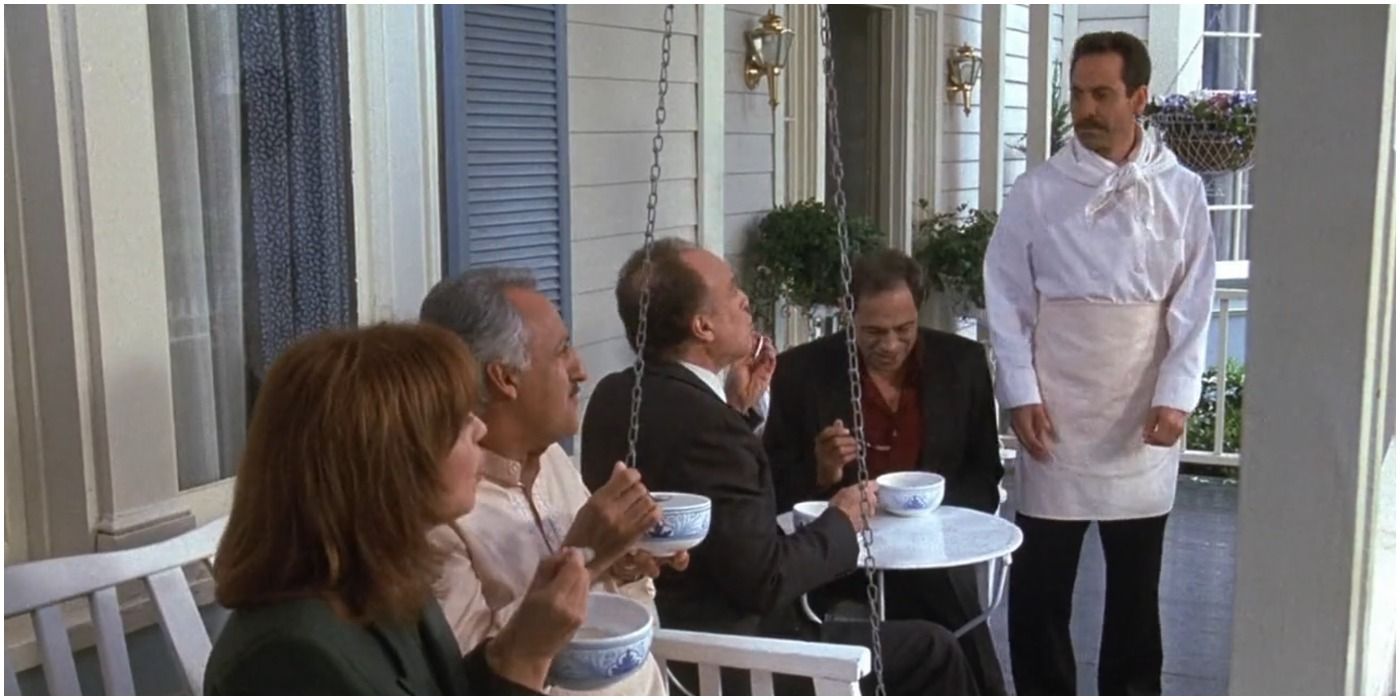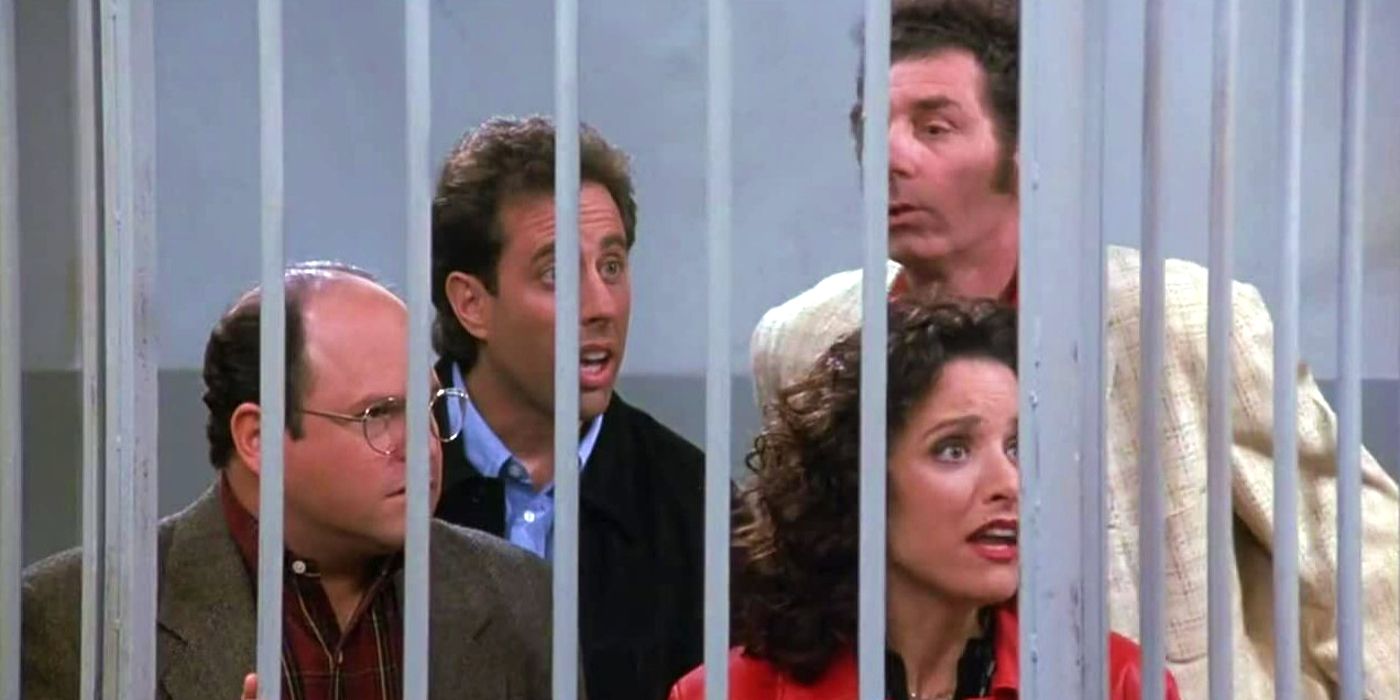A quarter of a century after it went off the air, Seinfeld is still noted as one of the best TV series of all time, which is why the series finale is considered such a disaster. An award-winning groundbreaker, the show avoided the tropes of its sitcom ancestors by humorously portraying the trivialities and superficial inconveniences of daily life through the story of four friends living in New York. Seinfeld became a pop culture phenomenon that instantly launched its main cast into celebrityhood, and yet, the series finale was a disaster.
Episodes of Seinfeld, which ran for nine seasons from 1989 to 1998, were the next day’s water cooler talk. Classics like “The Puffy Shirt,” “The Boyfriend,” “The Frogger,” “The Contest” and “The Chinese Restaurant” have continued to elicit laughter from viewers. Then, there is “The Finale” which unintentionally became the most hated episode of the series. Here are the 10 reasons why the Seinfeld ending didn’t work.
10 There’s A Tired Retread Of “The Jerry Show” Plot From Season 4
The final episode begins with Jerry and George learning that their discarded pilot for “The Jerry Show,” is being reconsidered by NBC executives. The concept was introduced five years prior in season 4 when Jerry and George pitch a sitcom about their lives, which they describe as “a show about nothing.” Instead of opening with a fresh approach to the end of the series, Seinfeld presented a tired retread that didn’t offer any nuance or much in terms of laughs, an ominous start to the show’s farewell.
9 Newman Doesn’t Follow Through On His Threat to Jerry
Early in the episode, Newman, Jerry’s nemesis, tells Jerry, “Your day of reckoning is coming, when an evil wind will blow through your little play world and wipe that smug smile off your face! And I’ll be there, in all my glory, watching! Watching as it all comes crumbling down!” It’s a terrific line that foreshadows the calamity that is to ensue, except that Newman never actually follows through on his threat. Newman shows up to watch Jerry and his friends be put on trial for not helping the victim of a carjacking, but he’s nowhere to be seen when the final verdict is given and the jail door is slammed on the gang.
8 There’s An Unnecessary Almost-Plane Crash
After receiving the exciting news that NBC will green-light “The Jerry Show,” Jerry, George, Elaine and Kramer board a private plane to Paris to celebrate. En route, Kramer stumbles into the cockpit, causing the plane to nearly crash before making an emergency stop in the fictional small town of Latham, Massachusetts. Though the gang had always turned innocuous situations into huge messes, the almost-plane crash was too serious for the tone of the show; the hysterics they attempted to play for a laugh dropped like a thud.
7 The Geraldo Rivera News Segments Are Boring
Jerry, George, Elaine and Kramer are arrested and put on trial for breaking The Good Samaritan Law in Latham. Because they are the first people to ever be arrested and tried for the crime, the case garners national attention, including the news program, “Geraldo Rivera Live.” Interspersed throughout the 1-hour finale are segments in which Geraldo himself comments on aspects of the trial and checks in with a reporter on-site. What was meant be clever satire of live TV coverage of courtroom drama came off as boring commentary of an episode already lacking in laughs.
6 Finale Emphasized Body-Shaming Jokes
The group breaks The Good Samaritan law while taking a stroll through downtown Latham whereupon they witness a man being carjacked at gunpoint. Instead of helping the victim, they make crude comments about his weight, what is commonly known as body-shaming. The jokes felt cringey then, and they are more shocking to hear today since there is much more awareness around body-shaming and weight struggles.
5 Too Much Focus On Food Humor
The success of Seinfeld relied heavily on funny observations the characters would make about run-of-the-mill items, such as bread, bras, handbags and furniture, without talking ad-nauseam about things and overly annoying viewers. Strangely, the show took an opportunity to try several half-baked jokes about food. There were jokes about the wonders of mango, the dangers of a pineapple, putting cheese on a sandwich, eating jail food, and filling a suitcase with cereal so Jerry and Kramer can eat it later in the courthouse, all of which left viewers with a stale taste in their mouths.
4 The Characters Are Never Contrite Or Humble
Seinfeld worked largely due to the characters being self-absorbed in trivial matters. Rarely did any of the characters take any accountability for overreactions that caused situations to rapidly worsen. But not admitting fault for intervening in a robbery that they witnessed from a few feet away seemed unrealistic and unreasonably cruel, despite the characters’ propensity for selfish behavior. Even after they’re convicted and sentenced to prison for not abiding The Good Samaritan Law, neither Jerry, George, Elaine nor Kramer act contrite or humble about the situation.
3 The Show Stopped Being Funny
The pitch for Seinfeld, created by comedians Jerry Seinfeld and Larry David, was to create a sitcom about how the average comedian finds material in the daily observance of life’s tiny absurdities. Thus, the series did this excellently for nearly 200 episodes. While it’s always challenging for a sitcom to keep the laughs consistent, it was unfortunate that the series ran out of gas and completely stopped being funny in the finale.
2 It’s Overstuffed With Characters From The Series
A hallmark of Seinfeld was its wide array of zany characters who would appear in one or a few episodes. Many of these characters would be maligned in some way by the antics of Jerry and company. Most all of them re-appear at the trial as character witnesses for the prosecution. As they give their testimonies, viewers are treated to flashbacks from the episodes where they were treated indifferently by the gang. Overstuffing an episode with past characters and incorporating flashbacks is a worn-out sitcom technique that Seinfeld had consistently avoided as a more unconventional show.
1 The Final Jail Scene Is A Let-Down
Perhaps what rankles a lot of viewers is the exact final scene itself which depicts the four main cast members sitting in the jail with no hope of getting out anytime soon. TV comedies, unconventional or not, historically end their series on a funny and/or poignant note. Seinfeld chose to wrap up on a pitiful and disappointing note with Jerry, George, Elaine and Kramer complaining about their situation and rehashing mishaps from previous episodes.

